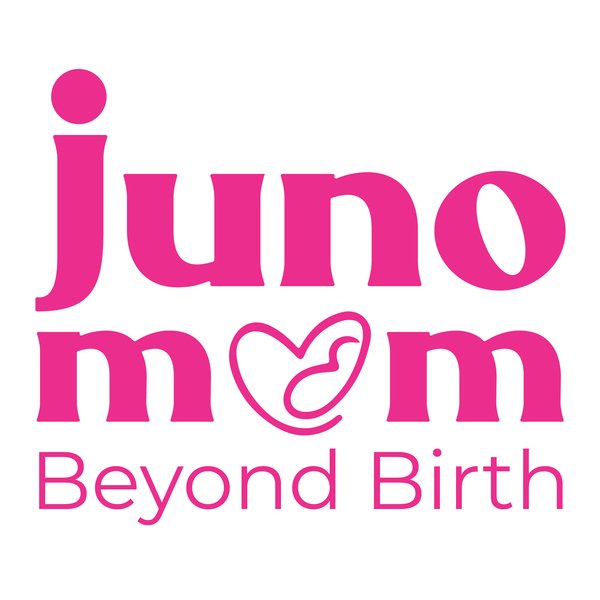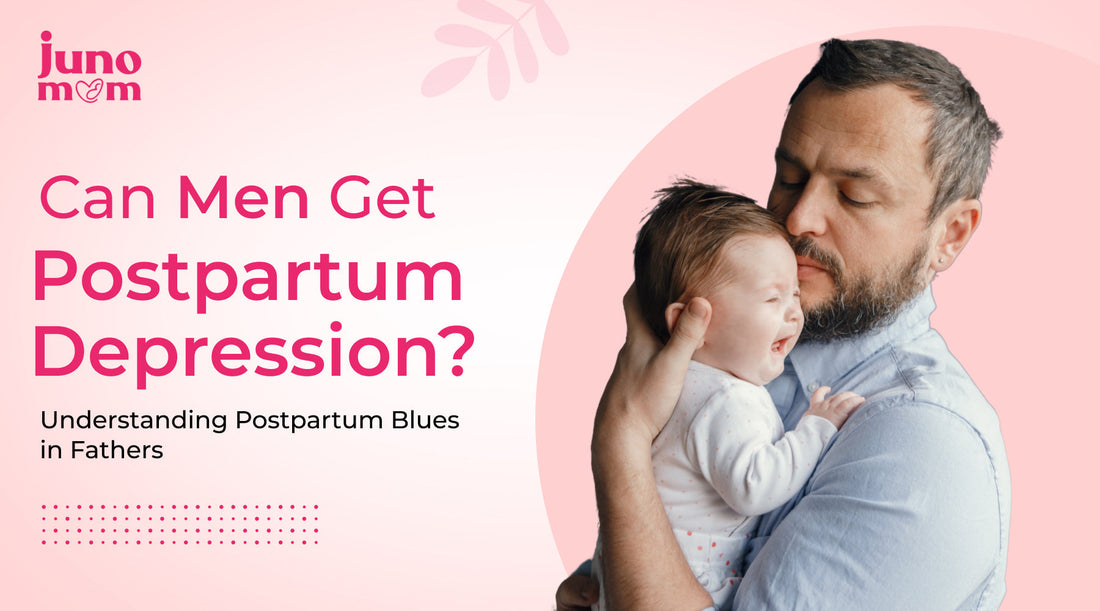When we talk about postpartum depression, our minds automatically turn to mothers. It's a well-known fact that the physical and emotional changes that come with pregnancy and childbirth can be overwhelming, often leading to what we call postpartum depression. This is a condition that many mothers go through after having a baby, characterized by feelings of sadness, anxiety, and even guilt. However, what many don’t realize is that postpartum depression doesn't just affect mothers—it can also have an impact on fathers.
Yes, postpartum depression in fathers is a very real condition, but it's still something that’s not often discussed or recognized.

As a mother, you may have noticed your partner feeling a bit different after your baby was born. He might have become more irritable, withdrawn, or emotionally distant. In many cases, it can be easy to overlook these signs, chalking them up to the challenges of fatherhood or the stress of adjusting to the new routine. But the truth is, men too can experience what we call postpartum blues or even more serious postpartum depression after the birth of their child. It's a complicated and often misunderstood issue, but acknowledging it is the first step in providing the right support.
Just as motherhood brings about a series of physical and emotional changes, fatherhood comes with its own set of challenges. Men can feel overwhelmed by the pressure to be the provider and protector while also adapting to the new demands of parenting. The postpartum effect in fathers can sometimes go unnoticed, as it doesn’t always manifest in the same way as it does in mothers.
In this blog, we’ll explore how postpartum depression in fathers looks, its causes, and how to support your partner during this challenging time. It’s important to understand that parenthood, whether it’s the mother or the father, comes with its set of emotional struggles, and no one should have to face them alone.
What is Postpartum Depression?
Before diving into the specifics of how it affects fathers, it's important to understand what postpartum depression is. For mothers, it typically manifests as feelings of extreme sadness, anxiety, and sometimes a sense of disconnection from the baby. This condition can develop after childbirth, due to hormonal changes, sleep deprivation, and the overwhelming responsibility of caring for a newborn. It can lead to emotional and physical exhaustion, making it difficult to bond with the baby or even take care of oneself.

For fathers, the experience might look different. The emotional struggles that dads go through aren’t always as recognized as mothers’ challenges, but they are just as important. While the baby blues in mothers usually resolve within a few weeks, postpartum depression in fathers can last much longer if not addressed. Fathers can experience similar feelings of anxiety and sadness, but it’s often compounded by the societal pressure to be strong and supportive without acknowledging their own emotional needs.
Can Men Experience Postpartum Depression?
Yes, absolutely. While it’s less common for fathers to talk about postpartum depression, it’s a very real issue. The shift in family dynamics can be a shock to both parents, but men may feel like they have to suppress their emotions, believing they should be able to handle everything with ease.

The truth is, it’s normal for both parents to feel overwhelmed. When a man becomes a father, he may experience feelings of inadequacy or confusion about his role. These feelings can sometimes spiral into more serious emotional struggles. Emotional support and understanding are key to helping both mothers and fathers adjust to their new roles.
Common Symptoms of Postpartum Depression in Fathers
Just like mothers, fathers who are experiencing postpartum depression can show a range of emotional and physical symptoms. However, fathers may not always recognize these signs themselves or may not feel comfortable discussing them. Some of the most common symptoms of postpartum depression in fathers include:

Emotional Symptoms:
- Increased irritability or frustration
- Feeling overwhelmed or out of control
- Sudden mood swings
- Feelings of sadness or hopelessness
Physical Symptoms:
- Chronic tiredness or fatigue
- Disrupted sleep or insomni
- Lack of appetite or overeating
Behavioural Changes:
- Withdrawal from family or social circles
- Lack of interest in the baby or feeling disconnected from the child
- Increased alcohol consumption or use of other coping mechanisms
It’s important to remember that not all fathers will show these symptoms in the same way. Some may appear more distant, while others may become overly anxious or upset. The key is to recognize that emotional distress is not a sign of weakness but a normal response to the intense changes that come with parenthood.
Causes of Postpartum Depression in Fathers
There are several factors that can contribute to postpartum depression in fathers. While the reasons may vary from one individual to another, common triggers include:

- Hormonal Changes: Men can experience a drop in testosterone levels, which can contribute to mood swings and feelings of sadness.
- Lack of Sleep: The sleepless nights and constant caregiving can take a toll on mental and physical health.
- Stress of Fatherhood: The sudden shift in responsibilities can lead to feelings of being overwhelmed. Men may feel the need to be strong for their partner and the family but struggle to manage their own emotions.
- Relationship Changes: The birth of a child can sometimes lead to a feeling of disconnection between partners. Fathers may feel left out of the bonding experience between mother and baby.
These causes can combine in different ways, and the impact on fathers can be significant. It’s important to recognize these stressors and validate the emotional experience that fathers are going through during this time.
How to Support Fathers with Postpartum Depression
If you notice signs of postpartum depression in fathers, it’s important to offer your support and understanding. Here are a few ways to help your partner during this challenging time:

- Open Communication: Encourage your partner to talk about their feelings and listen without judgment. Many fathers may feel isolated or afraid to share their struggles, so it’s important to create a safe space for these conversations.
- Share the Parenting Responsibilities: Make sure that both parents are involved in caring for the baby. This can strengthen the father-child bond and alleviate some of the pressure that fathers feel.
- Encourage Self-Care: Both parents need to take time for themselves. Whether it’s a break to relax, take a walk, or engage in a hobby, self-care is essential for mental well-being.
- Seek Professional Help: If the symptoms of postpartum depression persist or become more severe, it’s important to seek professional help. Therapy, counselling, or support groups can be valuable resources for fathers experiencing emotional struggles.
Conclusion
Parenthood is a huge transition for both mothers and fathers. While much of the focus is on the mother’s well-being during the postpartum period, it’s equally important to recognize and address the emotional struggles fathers may face.
Understanding that postpartum depression in fathers is real and valid is the first step toward providing better support and care for both parents. By opening up the conversation about postpartum depression and encouraging emotional expression, we can help ensure a healthier and more balanced experience for everyone in the family.


